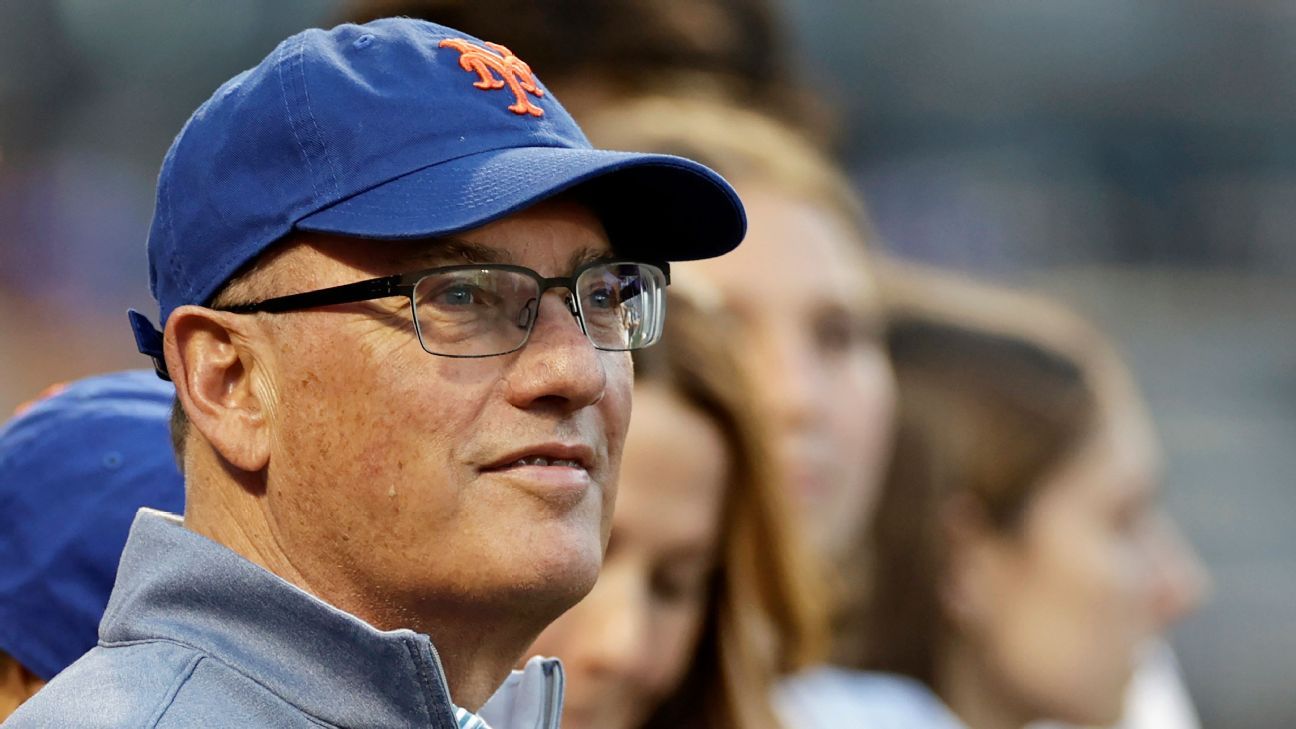
NEW YORK -- Just outside the window of Steve Cohen's office at Citi Field, a crane peeks its neck high into the air, finishing preparations for the installation of the largest video board ever to grace a baseball stadium. Off in the distance sits a 50-acre parking lot that Cohen envisions turning into an entertainment hub, a place people can gather before and after taking in a game with the team he has determined will be the biggest and best and smartest and winningest: the New York Mets.
Two years after buying the Mets for $2.4 billion, Cohen is settling into a number of character types -- some of them willingly, some assigned to him. For Mets fans, he is a godsend, the richest owner in the game, happy to spend his money to bring the team its first World Series championship since 1986. For locals, he is a salesman, though at least one who is soliciting their input on how the parcel of land can benefit the community. For some baseball owners, he is a pariah, an ostentatious, new-money dissident whose astronomical payrolls threaten the sport. For most, he is an inevitability. He seems the distillation of what a New York owner can and should be -- a godsend and salesman and pariah all at once, with broad enough shoulders to juggle the three. It's reminiscent of no one more than the archetypal New York owner, George Steinbrenner, who took a historic franchise in the Yankees and supercharged it into an international brand.
"George seemed bigger than life and passionate about baseball and brought a lot of life to the game," Cohen told ESPN last week in a rare one-on-one interview. "He made baseball interesting. And he did it his way. I'm going to do it my way. I don't know if I'm making baseball interesting."
Cohen undoubtedly is. With spring training a week away, the Mets enter the 2023 season as perhaps the most fascinating team in baseball -- and arguably the finest, too. Cohen guaranteed nearly $500 million to free agents this winter and will carry baseball's largest payroll ever in 2023. It runs in stark contrast to his predecessors, the Wilpon family, who operated the Mets more like mid-market straggler than big-market behemoth. But the Mets aren't simply following the blueprint of Steinbrenner's later years, either, by focusing only on free agency.















 Phone: (800) 737. 6040
Phone: (800) 737. 6040 Fax: (800) 825 5558
Fax: (800) 825 5558 Website:
Website:  Email:
Email: 






